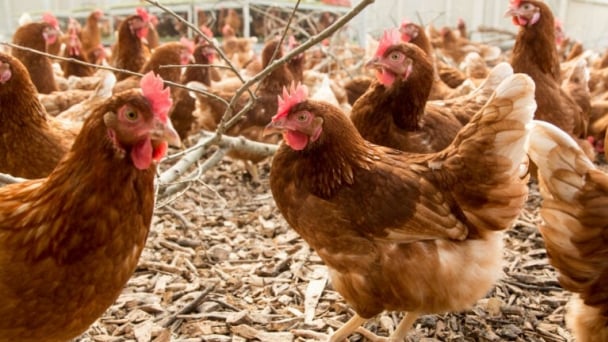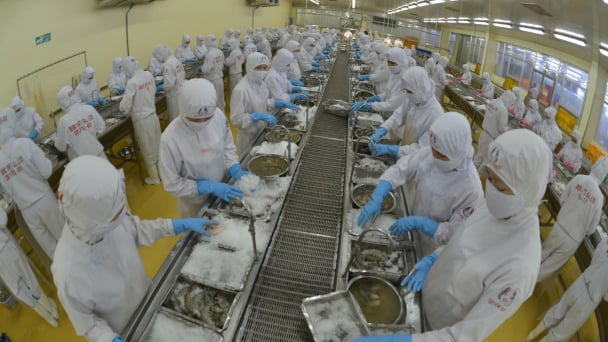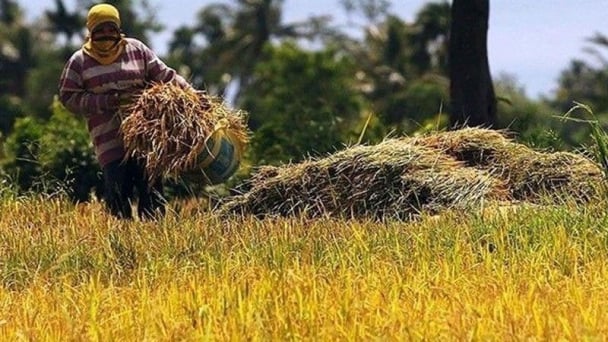April 16, 2025 | 14:51 GMT +7
April 16, 2025 | 14:51 GMT +7
Hotline: 0913.378.918
April 16, 2025 | 14:51 GMT +7
Hotline: 0913.378.918
China's Ministry of Education is supporting universities to establish Shiology as an interdisciplinary discipline, in its official response to a proposal of the Second Session of the 14th National Committee of the Chinese People's Political Consultative Conference recently.
The ministry said earlier this month that it encourages degree-conferring institutions with autonomous review rights to independently set up Shiology as a first-level interdisciplinary discipline based on their own capacities. Additionally, the MOE supports universities in independently establishing second-level interdisciplinary disciplines focused on food-related research.
During the "two sessions" in March last year, Yang Xiaobo, a member of the 14th CPPCC, submitted a proposal advocating for the establishment of Shiology as an interdisciplinary discipline.
The proposal highlighted that over the past 300 years, the modern scientific system has been evolving from specialized cognition to interdisciplinary and integrated cognition.
In the field of food-related issues, beyond the existing disciplines of agronomy, food science and nutrition, a comprehensive and integrated knowledge system is needed. This system should holistically integrate food production and consumption, farmers' and citizens' interests, food safety and public health, and food resource allocation with long-term social peace.
Such a holistic approach would replace fragmented cognition and enable comprehensive solutions to human food-related challenges. Therefore, Shiology should be incorporated into the modern scientific knowledge system as a complete framework for addressing food-related issues.
Yang believes that Shiology focuses on all human food-related issues, integrating food acquisition, eater health and food order into a unified whole to uncover fundamental principles. It aims to reveal the objective laws governing human food issues and provide a knowledge system for solving them. The term "Shiology" is derived from the pinyin of the Chinese character "Shi" combined with the English suffix "-ology," reflecting its distinct Chinese origin.
In recent years, the development of Shiology in China has accelerated, attracting increasing attention and responses from other countries and the United Nations.
In 2017, China initiated the World Shiology Forum, which played a significant role in uniting global scholars and leading the development of this discipline.
At the 3rd World Shiology Forum held in Japan in 2019, participants reached a consensus that the scientific system of Shiology is a global public good for solving food-related issues. In 2020, during the Istanbul Summit of the same forum, another consensus was reached: "Holistic cognition is essential for effectively solving food-related problems."
Notably, at the 4th World Shiology Forum in 2023, the Shiology theoretical system advocated by Chinese scholars gained widespread international attention and recognition. A consensus was reached to "accelerate the development of the Shiology scientific system, promote the establishment of international standards for Shiology, jointly build a global food-related digital platform and actively promote general education in Shiology." In January last year, the Shiology Research Center was established at Renmin University of China.
Liu Guangwei, director of the Shiology Research Center at Renmin University of China and the founder of the Shiology knowledge system, said that existing food-related disciplines are fragmented. Transitioning from fragmented cognition to holistic understanding in food studies is the future direction, and Chinese scholars are well-positioned to lead this global shift.
Liu emphasized that the contradiction between the "fragmentation of food cognition" and the "holistic nature of food issues" is a major challenge for humanity in the 21st century.
"China's pioneering establishment of Shiology as an interdisciplinary discipline supplement and improves the modern scientific system. It not only offers Chinese wisdom and solutions for comprehensively addressing global food-related problems—serving as a global public good—but also effectively addresses China's own food challenges," Liu said. "Shiology's scientific theory can support national strategies such as 'food security', 'food safety', 'rural revitalization', 'Healthy China' and 'high-quality development', fundamentally solving the challenge of ensuring 'both a secure food supply and healthy and sustainable consumption'.
Liu further stressed that establishing Shiology as an interdisciplinary discipline will position China as a global leader and model in the systematic governance of food-related issues. This initiative will accelerate the development and implementation of international Shiology standards and a global food-related digital platform in China.
(Chinadaily)

(VAN) After the merger, key leadership personnel of the provinces must consult with the General Secretary, key leaders, and the Standing Secretariat.

(VAN) The latest Business Benchmark on Farm Animal Welfare (BBFAW) reveals steady progress on farm animal welfare across the global food industry.

(VAN) Green credit is a financial policy that effectively supports environmentally friendly projects and activities today.
/2025/04/09/1049-2-165919_630.jpg)
(VAN) With a revenue of less than VND 30 billion/year, packaging producers are exempted from EPR liability under Decree No. 05/2025 newly issued.

(VAN) Ministry of Agriculture and Environment has issued an Action Plan for sector's development in the coming period, aiming for a growth rate of 4% or higher and an export turnover of USD 65 billion.

(VAN) The 177th Session of the FAO Council opened on Monday at the Organization’s headquarters in Rome.

(VAN) In a statement, the Federation of Free Farmers (FFF) said the government must not be complacent over the reciprocal tariffs even if the Philippines will be slapped with the second lowest rate among US trade partners.